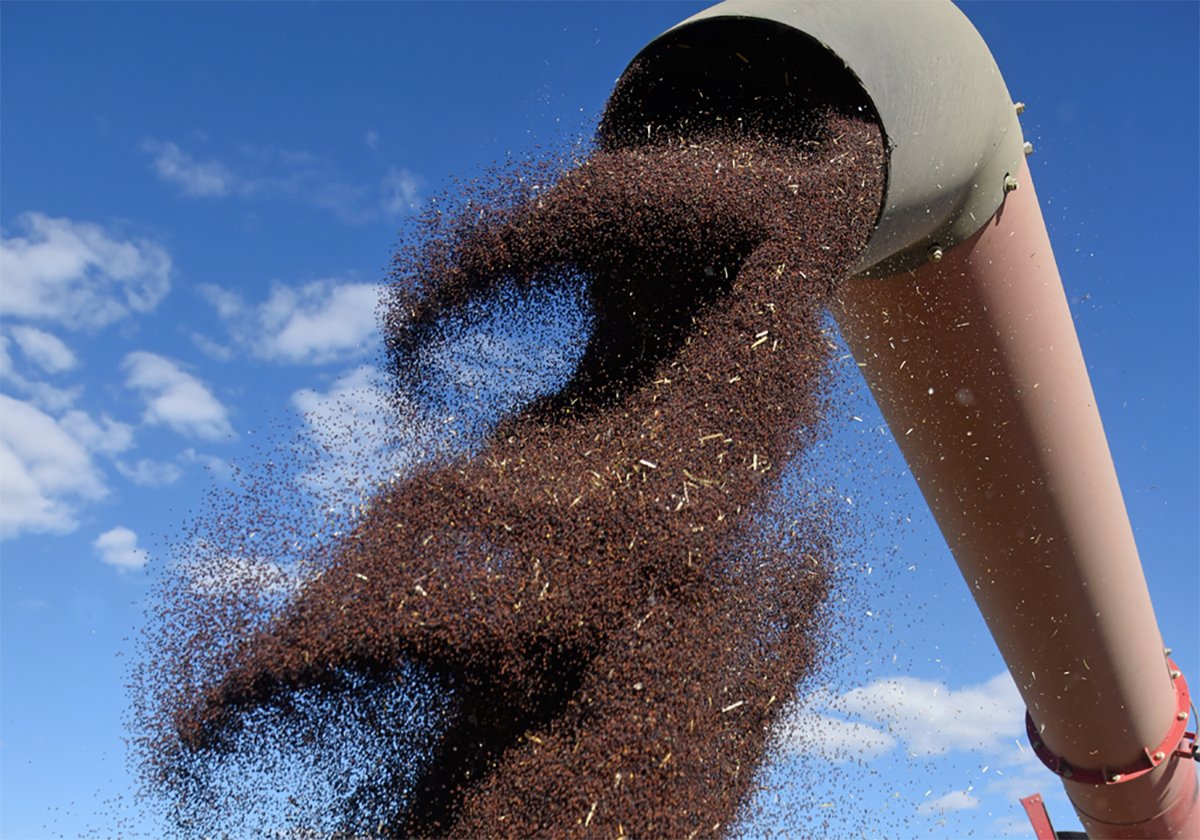As much as two million tonnes of grain will have to be sold into next year’s lower-priced market because of this winter’s transportation crisis, says the Canadian Wheat Board.
“This grain will not move until after Aug. 1, 1997,” the marketing agency said in a March 18 press release.
That’s a double dose of bad news for prairie farmers.
Not only will they be moving less grain off their farms this year than if the transportation system had worked properly, but when the grain does move, it will be worth less money.
Read Also

Ag minister says tariff situation with China is fragile, volatile
Agriculture ministers from across Canada said they heard canola producers’ concerns about tariffs but it seems unlikely they can do much about them.
In its most recent pool return outlook, the board projected 1997-98 wheat, durum and barley prices will be down by anywhere from 12 to 24 percent from this year’s levels.
“Sales opportunities that could have been taken advantage of a few months ago are now at a lower price,” said Bill Nicholson, a Shoal Lake, Man., farmer and member of the CWB’s producer advisory committee, adding farmers are already experiencing “significant cash flow problems” because of the shipping woes.
The impact of the transportation problems on farmers’ delivery opportunities was driven home last week when the board announced it wouldn’t be taking any CW red spring, prairie spring or top grade durum wheat offered by farmers under the Series C contract. The Series D contract will also be affected.
In a press release, the board laid the blame for the situation on the rail companies, as it has throughout this winter’s transportation crisis.
The board has called 60 percent of the Series A contract for No. 1 and No. 2 CWRS and 80 percent for No. 3. It hasn’t called any red spring wheat under Series B.
In a March 18 press release, CP Rail president and chief executive officer Robert Ritchie reiterated the railway’s position that shipping problems encountered this year are due to bad weather and the “inefficient, non-commercial, highly regulated and unaccountable” grain handling and transportation system.
Push for deregulation
He rejected calls from some provincial politicians and farm groups for an inquiry into railway performance. Instead, “we need to move quickly to a deregulated, fully commercial environment with built-in incentives and penalties for all the participants,” he said.
Last week the Western Grain Elevator Association called for establishment of a transportation advisory council, including representatives from government and all aspects of the grain industry, to conduct a comprehensive review of grain transportation, with a special emphasis on the issue of accountability.
The CWB’s advisory committee called for a legislative inquiry, adding if the rail companies are found to have performed poorly, they should be required to compensate farmers for the financial losses.
From the other side of the issue, the Western Canadian Wheat Growers Association last week said the wheat board’s “constant carping” about railway performance is designed to cover up its own failures.
Association president Larry Maguire said the board, the railways and the federal government all must share blame.
He also called on the board to issue no-cost export permits to farmers to allow them to find other ways of getting their grain to market: “If the system is unable to get our grain to the customer we should have the freedom to do it ourselves.”
CWB spokesperson Deanna Allen said the board considered and rejected that idea in order to ensure all farmers are treated equally. A no-cost buyback for farmers who didn’t sign CWB contracts would reduce delivery opportunities and returns for farmers who did.
Agriculture minister Ralph Goodale said, “I think Mr. Maguire is drawing a rather long bow when he says a marketing system change would materially help what is a transportation system problem. In fact, the logistics of our transportation system could well become more complicated under Mr. Maguire’s scenario … . When Mr. Maguire talks about no-cost buy-back permits, what he is really talking about is the dual marketing scenario.”














